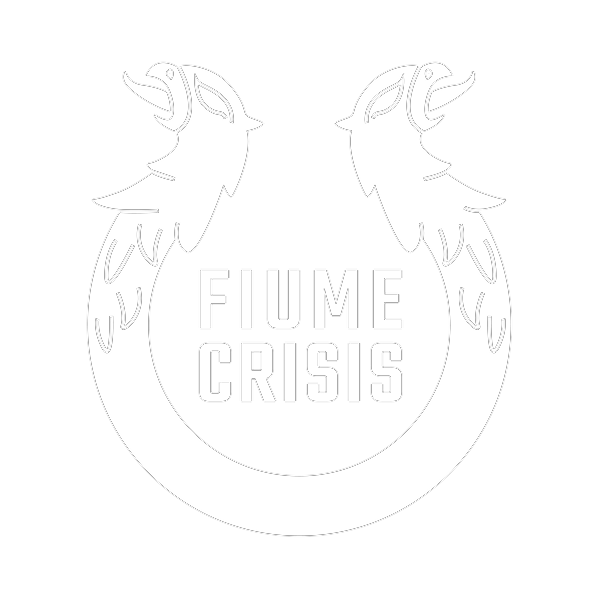edu-larp project


Fiume Crisis is an edu-larp project funded by the Erasmus+ Program and run by three organizations from three EU countries, Parallel Worlds from Hungary, Terrible Creations from Croatia and Altera Cultura in association with Terre Spezzate from Italy.
The project focuses on creating live-action roleplaying tools, scenarios that use the context of the vibrant and chaotic era of Rijeka's history following the First World War to reflect upon our present and to educate about issues of political radicalization, populist rhetoric, and propaganda.
The project focuses on creating live-action roleplaying tools, scenarios that use the context of the vibrant and chaotic era of Rijeka's history following the First World War to reflect upon our present and to educate about issues of political radicalization, populist rhetoric, and propaganda.
Why this setting?
We believe that using a historical setting with an adequate amount of creative freedom can enable its elements to provide meaningful tools for reflecting upon contemporary questions.
This particular setting provides an intriguing entanglement of different cultural, ideological, and political elements and belief systems.
In 2020 was the hundred-year anniversary of the Fiume City State which gave topicality to the subject in the manner of "looking back for seeing further" This means that while it forms a tool of historical memory, it also acts as a way of addressing current socio-political issues.
This historical backdrop can be used as an example of how populist politics work and the project can become a tool for sensitization and reflection, for raising political awareness amongst European citizens.
The main theme of Fiume/Rijeka's history in the turmoil of the years following the end of World War I is related to three different national histories: Croatian, Italian, Hungarian. There are different narratives in these countries about the events of this period. Thus it calls to be examined from all three different angles and the
This particular setting provides an intriguing entanglement of different cultural, ideological, and political elements and belief systems.
In 2020 was the hundred-year anniversary of the Fiume City State which gave topicality to the subject in the manner of "looking back for seeing further" This means that while it forms a tool of historical memory, it also acts as a way of addressing current socio-political issues.
This historical backdrop can be used as an example of how populist politics work and the project can become a tool for sensitization and reflection, for raising political awareness amongst European citizens.
The main theme of Fiume/Rijeka's history in the turmoil of the years following the end of World War I is related to three different national histories: Croatian, Italian, Hungarian. There are different narratives in these countries about the events of this period. Thus it calls to be examined from all three different angles and the
Online Conference about the
Fiume Free City period
Fiume Free City period
We invited historians, professional researchers from the participating countries who study in-depth the early 20th century history of Fiume and especially the city's independent state period following World War I. Each historian gave an online lecture related to the topic via the Zoom platform that is accessible for the wider public and their recordings are available for viewing later on. The video lectures are publicly available on the online platforms of all participating partners.
Along three lectures by three researchers, we also held a panel discussion with all lecturers present:
OUR LECTURERS:
Tea Perinčić, curator at the Maritime and History Museum of the Croatian Littoral of Rijeka
Márton Pelles, University of Pécs, a researcher with a focus on the economical and societal history of Fiume between 1773 and 1913.
Emiliano Loria, Curator of the Archive of the Society of Fiuman Studies, Archive-Historical Museum of Fiume in Rome and collaborator of the Rijeka Office of the Foundation "Il Vittoriale degli italiani".
Along three lectures by three researchers, we also held a panel discussion with all lecturers present:
OUR LECTURERS:
Tea Perinčić, curator at the Maritime and History Museum of the Croatian Littoral of Rijeka
Márton Pelles, University of Pécs, a researcher with a focus on the economical and societal history of Fiume between 1773 and 1913.
Emiliano Loria, Curator of the Archive of the Society of Fiuman Studies, Archive-Historical Museum of Fiume in Rome and collaborator of the Rijeka Office of the Foundation "Il Vittoriale degli italiani".
Game Design Workshop
We kicked-off the group work with an online crash course in larp and game design for participants who came from different fields. We organized two weekends full of lectures and workshops on game design, larp design, narrative design and historical game design. The course consisted of several shorter online sessions extended over a two-week period, with home and co-working assignments that prepared our participants for the work.
OUR WORKSHOP LEADERS:
Tibor Kiss "Dii" - a seasoned Hungarian game designer, who wrote more than 20 larp games through the years and one of the main organizers of the Hungarian Chamber Larp Gathering.
Mauro Longo - creator, editor, and author of several role-playing games and gamebooks: His most important gamebook series is the Deathcatcher series (GG Studio) which has three volumes. His latest success is Brancalonia, an Italian Campaign Setting for Dungeons & Dragons 5th Edition, created by Acheron Books and introducing a unique picaresque genre called "Spaghetti Fantasy"
Áron Birtalan - artist, musician, and experience-maker who makes real-life games, rituals, unusual gatherings, and educational initiatives. He is currently a PhD candidate at Stockholm University of the Arts, a fellow at the DAS Graduate School in Amsterdam, a member of the UNION network, as well as working as a teacher and advisor in social experience and consent design.
OUR WORKSHOP LEADERS:
Tibor Kiss "Dii" - a seasoned Hungarian game designer, who wrote more than 20 larp games through the years and one of the main organizers of the Hungarian Chamber Larp Gathering.
Mauro Longo - creator, editor, and author of several role-playing games and gamebooks: His most important gamebook series is the Deathcatcher series (GG Studio) which has three volumes. His latest success is Brancalonia, an Italian Campaign Setting for Dungeons & Dragons 5th Edition, created by Acheron Books and introducing a unique picaresque genre called "Spaghetti Fantasy"
Áron Birtalan - artist, musician, and experience-maker who makes real-life games, rituals, unusual gatherings, and educational initiatives. He is currently a PhD candidate at Stockholm University of the Arts, a fellow at the DAS Graduate School in Amsterdam, a member of the UNION network, as well as working as a teacher and advisor in social experience and consent design.
Residency in Rijeka
The one-week-long residency in May 2022 was a major part of the project, where participants were coming together to create three edu-larp scenarios.



















Funded by the European Union. Views and opinions expressed are however those of the author(s) only and do not necessarily reflect those of the European Union or the European Education and Culture Executive Agency (EACEA). Neither the European Union nor EACEA can be held responsible for them.


